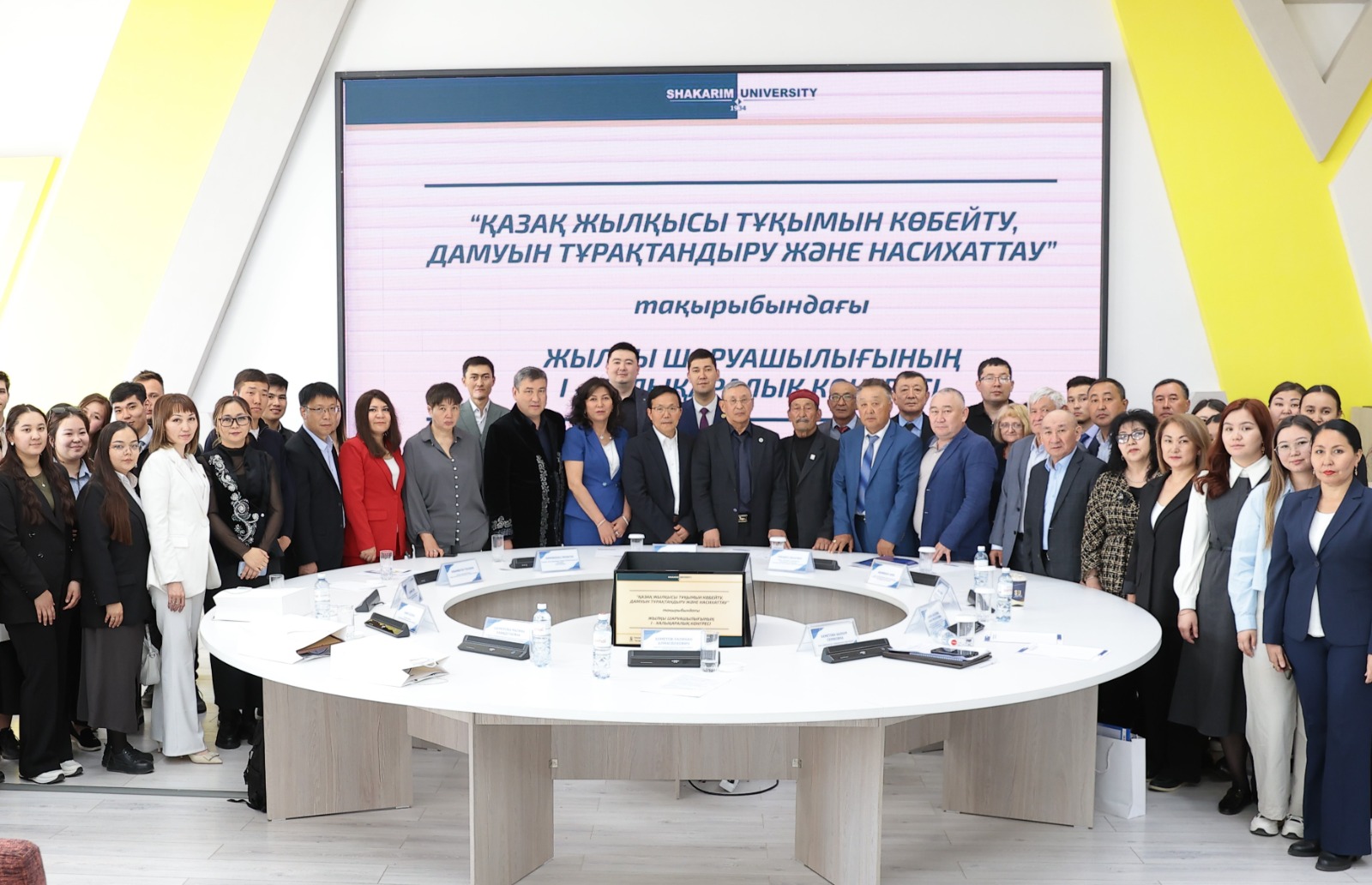On May 4–5, 2025, for the first time in Kazakhstan’s history, the First International Congress on Horse Breeding was held within the walls of Shakarim University.
The event brought together leading experts, scientists, representatives of agricultural universities, research institutes, pedigree farms, and ministries of the Republic of Kazakhstan and the People’s Republic of China.
This congress marked a new milestone in response to the strategic instruction of President Kassym-Jomart Tokayev on modernizing agricultural science and protecting the national genetic heritage.
The central symbol and focus of the Congress became the Kazakh horse — as the code of the nation, an economic resource, and a part of our civilizational memory.
Although some time has passed since this task was outlined, it was Shakarim University, a regional institution in Abai Region, that undertook the historic mission to address global challenges through local action.
Professor Sheng Ming Zeng of the China Agricultural University, who joined the delegation in visiting stud farms in Beskaragai District of Abai Region — recognized as a national center for breeding unique types of Kazakh and Mugalzhar horses — noted:
“The development of the 'Beskaragai' type became possible thanks to large-scale work with genetic material and the preservation of a unique gene pool. Kazakhstani scientists are already contributing to selection and processing in horse breeding. If we combine efforts in meat, milk, genetics, and selection, we could build an industry with a great future.”
Foreign experts highly appreciated Kazakhstan's achievements in horse breeding — especially the Kazakh horses known for their large size and ability to remain on pasture year-round.
The outcome of the event was a Resolution with a set of clear steps for 2025–2027, including the following key priorities:
Creation of a Scientific and Innovation Center for Horse Breeding at Shakarim University,
including a Laboratory of Genetics and Reproduction and a Training & Demonstration Farm;
Development of a National Digital Registry of Pedigree Lines;
Establishment of a National Database of Productive Breeding Horse Breeds;
Launch of youth and educational programs;
Strengthening of international cooperation, and more.
One of the central outcomes was an official appeal to the Ministry of Science and Higher Education of the Republic of Kazakhstan, with the following proposals:
To grant official state status to the National Program for the Development of Horse Breeding;
To support the digitalization and genetic monitoring of breeds through universities and research institutions;
To recognize Shakarim University as a scientific hub for horse breeding in Northeastern Kazakhstan.
The participants of the Congress pledged their historical and symbolic mission to preserve and strengthen the genetic heritage of the Kazakh horse, and to raise the prestige of horse breeding as a science, a business, and a cultural institution.
According to Rector of Shakarim University, Duman Orynbekov:
“We have taken a joint step with our Chinese colleagues toward a new future for unique horse breeds and a strategic rethinking of horse breeding as the foundation of agricultural security, export, culture, and identity.
During the Congress, participants visited pedigree farms in Abai Region and saw the ‘Beskaragai’ type of Kazakh horse and the ‘Irtysh’ line of Mugalzhar horses. This is history — and this is exactly what President Kassym-Jomart Tokayev emphasized in his course on modernizing agricultural science and reviving national breeding. We do not have the right to lose what constitutes our cultural and economic heritage.”
We, the participants of the Congress, having committed ourselves to preserving and strengthening the genetic legacy of the Kazakh horse and raising the prestige of horse breeding as a scientific, business, and cultural field, begin — starting from the new academic year — to train a new generation of specialists capable of shaping the horse breeding industry of the future.
Today, we can confidently say that the First International Congress on Horse Breeding, held at Shakarim University, has written its own chapter in the history of Kazakh horse breeding.

